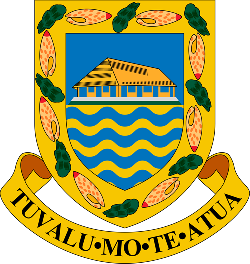Areas of Expertise
Project Status
Filter by project scope:
Project Type
Results
Project Coordinator: Susan TupulagaContact: susapaul@gmail.com ISAAC project is a 3 year project commencing in 2017 and funded by USAID and jointly implemented by SPC, SPREP and PIFS covering 4 countries including Tuvalu, Fiji, Palau and Samoa. The main focal areas of ISAAC project are awreness and capacity building, policy development, climate change adaptation divided across three main key result areas; 1. Intergrated Institutional frameworks and national capacity stregthened2. Accessing Climate Finance3. Regional cooperation and corrdination and stregtheningSome of the project's achievements include; 1. supporting the NIE accrediation process in providing assistance to develop tools under Ministry of Finance2.Supporting review of Environmental Impact Assessment3. Establishment of Environmental Social Safeguard (ESS) as one of the requirement for NIE Accreditation process4. Development of Payout policy and methodology for the Tuvalu Survival Fund5. Supporting 20 students to persue Project Management IV Courses6. Supporting the development of the Climate Change Web Portal7. Contribute and participate in Awareness Activities8. Establish Data and Information for vulnerable sectors (in progress)9. Awareness activities on the tools/policy and regulation developed (for 2019)
Objectives - is to strengthen the national institutional capacity of Pacific Islands Countries (PICs) to effectively plan, coordinate and respond to the adverse impacts of climate change and disaster risk. It is intended to build on existing multi-sector, whole of iland approaches that have been implemented successfully in other Pacific Countries.
Status: Completed
Project Coordinator: Mr Saamu TuiAlthough climate change is cited as the most signifigant security threat to he south pacific, its likely effects on security and potential conflict are yet to be widely explored by the international an regional organisations present on the ground. Climate change in the pacific region has the potential for a myriad of cascading fragility and instability risks. These will affect men, women and youth differently, and vary across the region both according to timeframes under consideration and depending on the country context.There are a range of critical climate fragility risks emerging in the Pacific Region that will require greater examination, monitoring and coordinated action by many stakeholders at the national, regional and international level to prevent potential irrevesible economic, social, cultural and environmental damage with a range of potential security implications and a direct impact on social cohesion. Most critical issues amongst these include:
Status: Completed
